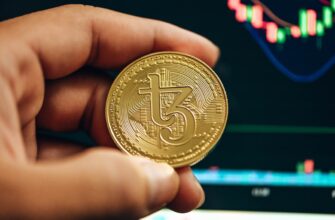- Beyond Bitcoin: The Explosive World of Other Cryptocurrency
- What Exactly Is “Other Cryptocurrency”?
- Why Diversify into Other Cryptocurrency?
- Top 5 Other Cryptocurrency Projects to Monitor
- How to Evaluate Other Cryptocurrency Projects
- Navigating the Risks of Altcoin Investments
- Getting Started with Other Cryptocurrency
- Other Cryptocurrency FAQ
Beyond Bitcoin: The Explosive World of Other Cryptocurrency
When people hear “cryptocurrency,” Bitcoin often dominates the conversation. Yet the digital asset universe extends far beyond this pioneer. Other cryptocurrency—commonly called altcoins—represent over 99% of the 23,000+ crypto projects actively reshaping finance, technology, and ownership models. This guide explores why these alternatives matter, how to evaluate them, and which emerging coins could transform your portfolio.
What Exactly Is “Other Cryptocurrency”?
“Other cryptocurrency” refers to all digital currencies excluding Bitcoin (BTC). These alternatives, known as altcoins (alternative coins), serve specialized purposes:
- Platform Tokens: Enable decentralized apps (e.g., Ethereum’s ETH)
- Privacy Coins: Offer anonymous transactions (e.g., Monero)
- Stablecoins: Pegged to assets like USD to reduce volatility
- Utility Tokens: Grant access to specific services or networks
- Meme Coins: Community-driven assets (e.g., Dogecoin)
Why Diversify into Other Cryptocurrency?
While Bitcoin remains dominant, altcoins present unique advantages:
- Innovation: Test cutting-edge tech like smart contracts or zero-knowledge proofs
- Growth Potential: Smaller market caps allow for exponential gains
- Niche Solutions: Solve specific industry pain points (e.g., supply chain tracking)
- Ecosystem Exposure: Participate in emerging DeFi, NFT, or metaverse platforms
Top 5 Other Cryptocurrency Projects to Monitor
- Ethereum (ETH): The leading smart contract platform transitioning to energy-efficient Proof-of-Stake
- Cardano (ADA): Research-driven blockchain emphasizing security and scalability
- Polkadot (DOT): Connects multiple blockchains into a unified “internet of blockchains”
- Chainlink (LINK): Decentralized oracle network providing real-world data to smart contracts
- Polygon (MATIC): Layer-2 scaling solution boosting Ethereum’s speed and reducing fees
How to Evaluate Other Cryptocurrency Projects
Before investing, apply this framework:
- Whitepaper Analysis: Does it clearly define the problem and solution?
- Team & Partners: Look for experienced developers and credible backers
- Tokenomics: Examine supply limits, distribution models, and utility
- Community Strength: Active social channels indicate long-term viability
- Technical Differentiation: Assess unique features versus competitors
Navigating the Risks of Altcoin Investments
Other cryptocurrency carries higher volatility and unique dangers:
- Regulatory Uncertainty: Governments may restrict certain coin types
- Liquidity Issues: Smaller altcoins suffer from thin trading volumes
- Rug Pulls: Malicious developers abandon projects after fundraising
- Tech Obsolescence: Rapid innovation can make projects redundant
Mitigate risks by allocating only discretionary funds and using dollar-cost averaging.
Getting Started with Other Cryptocurrency
Follow these steps to enter the altcoin market safely:
- Research reputable exchanges like Coinbase or Binance
- Set up a secure hardware wallet (e.g., Ledger)
- Start with established projects before exploring newer coins
- Use technical analysis to identify entry points
- Diversify across 3-5 projects to spread risk
Other Cryptocurrency FAQ
Q: How many other cryptocurrencies exist?
A: Over 23,000 as of 2023, though fewer than 100 have significant market traction.
Q: Are altcoins better investments than Bitcoin?
A: Not necessarily—Bitcoin offers stability while altcoins provide growth potential. A balanced portfolio often includes both.
Q: Can other cryptocurrency replace fiat money?
A: Some (like stablecoins) aim for daily transactions, but widespread adoption requires regulatory clarity and infrastructure.
Q: What’s the cheapest way to buy other cryptocurrency?
A: Use exchanges with low fees like Kraken or Gemini, and avoid “gas fees” by trading during non-peak hours.
Q: How do I store altcoins securely?
A: Hardware wallets offer maximum security. Never leave large holdings on exchanges.
The landscape of other cryptocurrency evolves daily, blending technological breakthroughs with speculative energy. By focusing on projects with tangible utility and sustainable models, investors can navigate beyond Bitcoin toward the next generation of blockchain innovation.








